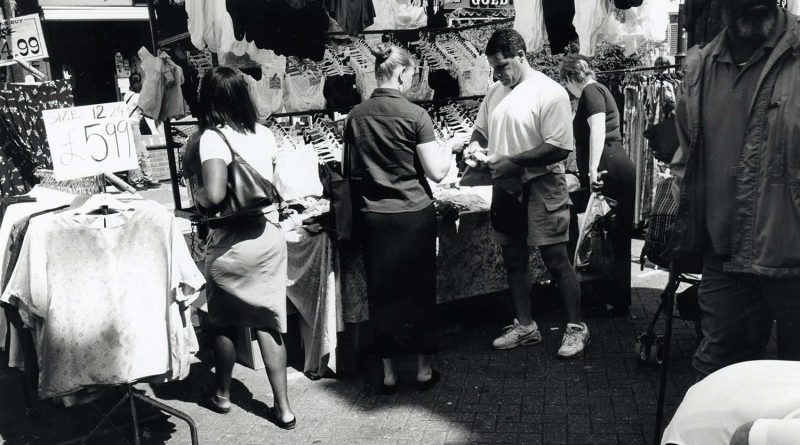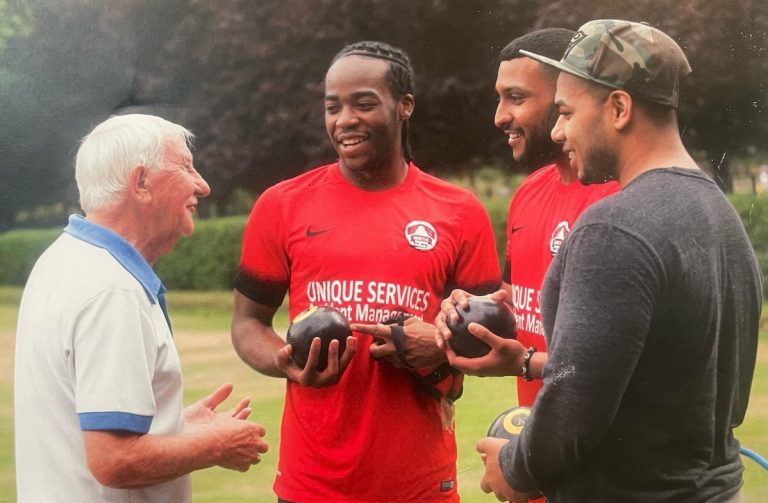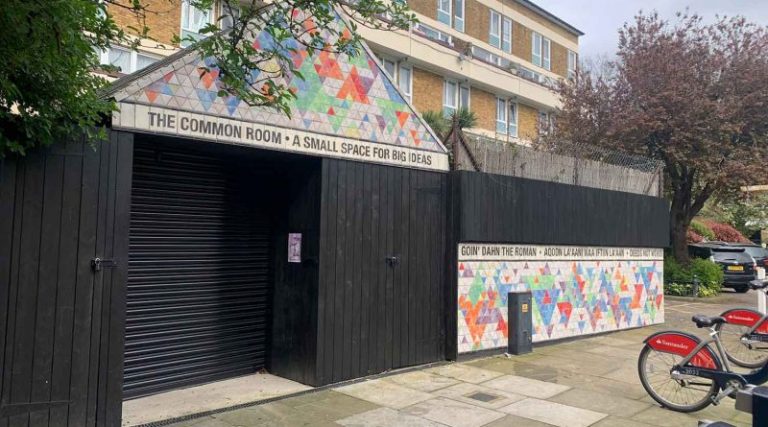What Cockney rhyming slang for money endures in the East End?
We put it to the people of East London to find out whether Cockney rhyming slang for money can survive in our cashless society.
Who else could do with a big bag of sand to pay their energy bill? Or perhaps just a few Nelson Eddy’s in their pocket for when they next go down the dub? Or maybe you don’t have a scooby what you’ve just read?
If your answer is the latter, then let us translate. ‘Nelson Eddy’s’ is Cockney rhyming slang for readies (pound notes), and ‘big bag of sand’ means a thousand pounds (a grand).
Both of these phrases belong to the vernacular of Cockney rhyming slang, a code-like way of speaking that originated in East London in the mid-19th Century.
Due to the nature of this East End jargon which is primarily spoken, there are very few written records of its roots, but it was supposedly the language of stallholders and criminals. A type of ‘in-the-know’ lingo, aiming to exclude or mislead anyone from outside of the Cockney bubble.
Is the tradition dying out? A study carried out by the Museum of London in 2012 surveyed 2000 people, half of them Londoners, about their understanding and use of Cockney rhyming slang. It emerged that just 8% used the terms in everyday speech.
With no obvious revival in Cockney rhyming slang since then, many have pronounced the vernacular to be all but to be brown bread (dead). To settle the score we put it to our Facebook followers to find out which, if any, phrases for money have endured in our increasingly cashless society.
With almost 250 responses to our Facebook callouts, it’s clear that East Enders still love to hear our native lingo. So while you might not use Cockney rhyming slang when tapping your contactless card on the bus, or while using your fingerprint to make a transaction on your iPhone, these codified phrases are still bouncing around in pockets of the East End.
Listen carefully and you might hear them on Roman Road – but make sure you know your stuff – you wouldn’t want to get caught handing over a deep sea diver (fiver) when you really need a cock and hen (tenner) to cover the bill.
When put to the people of East London, the most popular enduring Cockney rhyming slang included ‘pie and mash’ (cash), ‘Lady Godiva’ (fiver), and ‘Nelson Eddy’s’ (readies).
‘Bread and honey’ and ‘bees and honey’ were neck and neck in the race for ‘money’, with ‘bees and honey’ or ‘bees’ for short, coming out on top.
So how does this old-school jargon actually work? In its simplest form, a common word (money) is typically replaced by a rhyming phrase of two or three words (bees and honey). The most proficient Cockney would usually shorten this back down to one word (bees). And, there you have it. What might sound like gibberish to the untrained ear suddenly makes sense.
The native wit of the East End is not always simply a rhyming association, often having an interesting logic to the phrases. In the case of ‘bees and honey’; bees are held up as the epitome of hard work, work produces money, the possession of which is sweet.
The origins of some phrases are surprisingly elaborate. The term ‘Commodore’ is the result of a complicated string of rhyming wordplay for £15. Cockney rhyming slang for a fiver is a ‘Lady Godiva’, and the group the Commodores are best-known for their song ‘Three Times A Lady’ … have you got there yet?
During the 2012 Olympics, an ATM on Commercial Street gave customers the language option of ‘Cockney rhyming slang’. To withdraw a bit of ’sausage and mash’ (cash), you were first asked to enter your ‘Huckleberry Finn’ (pin). This led to monetary prompts such as ‘Lady Godiva’ (£5) and ‘Horn of Plenty’ (£20).
Beyond the boundaries of official rhyming slang, it appears East Londoners have a vast repertoire of idioms for money. From ‘shrapnel’, ‘dough’, and ‘wonga’, to the most popular ‘dosh’, mentioned by 30% of respondents on Facebook.
But why so much slang for money in particular? A study carried out by money-sharing app Pingit in 2019 revealed that ‘almost half the adult population finds discussing the subject of money difficult.’
However, 54% of Brits said that using slang words for money makes them feel more confident when discussing dough.
So, while traditional Cockney rhyming slang might’ve had its heyday on 19th-century East End market days, like any vernacular, it is subject to evolution. Whether it will keep pace with our digitised society is another question, but for those of us who know our ponies from our monkeys it certainly endures.
A useful (but by no means exhaustive) list of Cockney rhyming slang for money…
| Denomination | Cockney rhyming slang |
|---|---|
| Penny | Kilkenny |
| £1 | Lost and found |
| £5 | Lady Godiva, Deep sea diver |
| £10 | Cock and Hen |
| £15 | Commodore |
| £20 | Bobby Moore |
| £25 | Pony |
| £50 | Bullseye |
| £100 | Ton |
| £500 | Monkey |
| £1000 | Bag of sand |
Become an expert on the East End with all of our Cockney content.









RE: Rhyming Slang for Money. When I grew up in Roman Road during the 50s rhyming slang was in decline, but one I remember is referring to £6 as a Jack and his Uncle. Jack was £5 (no, not from the Jackson 5) and the ‘uncle’ was an extra pound. Used mostly in the betting fraternity.
Thanks Roy, we hadn’t heard this one! How fascinating. If not the Jackson 5 do you know why Jack was £5?
Jacks Alive = 5
Jacks alive. Apple core is for £20.A sandwich is known as a Banjo because of the crumbs when you brush them from your clothes. It looks as if you’re playing the Banjo.
A ‘score’ or 2 nil or 20
“Oner” has meant shilling, pound, and now generally means £100
Also, do you know that that’s Lou Ferrigno (former world body building champion and Incredible Hulk actor) in your photo?
As a non-native speaker, I am fascinated by this kind of thing. I mean, there are so many things we should know about your fantastic language, and I am sure I will never be able to manage all of them during my whole life. We Italians are not known as decent English speakers.
I did read somewhere that the terms “a monkey” or a “ poney” come from the Army, when in India. And refer to the pictures on a denomination of Rupees note.. so a 25 Rupee note must have had a horse on it at some point.. so a pony?